April 26, 2024 | 14:18 GMT +7
April 26, 2024 | 14:18 GMT +7
Hotline: 0913.378.918
April 26, 2024 | 14:18 GMT +7
Hotline: 0913.378.918
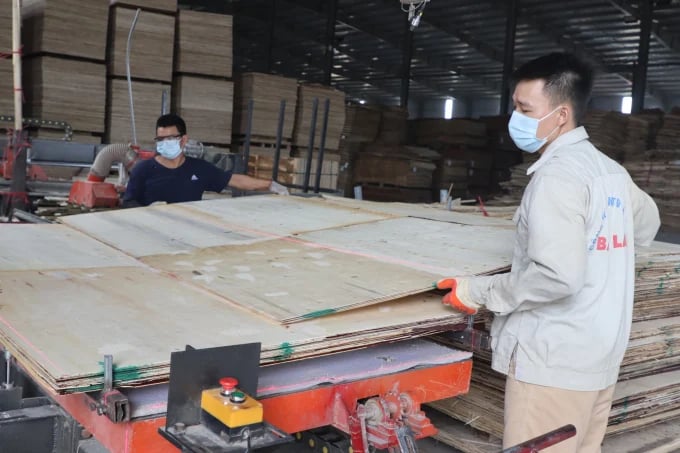
152 Vietnamese plywood businesses will be subject to a minimum duty of 4% when exporting to South Korea. Consequently, they will struggle with competitiveness issues and the risk of closure. Photo: PT.
The Vietnam Plywood Association under the Vietnam Timber and Forest Products Association has recently received numerous reports from Vietnamese businesses exporting plywood made from planted forest timber to South Korea. These reports indicate that the South Korean regulatory authority is preparing to issue its final rulings on the anti-dumping re-investigation for plywood products spanning from 2020 to 2023.
The South Korean regulatory authority has finalized its inspection of relevant Vietnamese export businesses in November 2023. Accordingly, the Korean regulatory authority is preparing to issue its final rulings on the anti-dumping duties for both investigated and non-investigated businesses.
During this phase, Vietnamese businesses have received differing information regarding the new rates of anti-dumping duty, which range from 4.2% to 13.04%.
Mr. Trinh Xuan Duong, Vice Chairman of the Vietnam Plywood Association, believes that there is a lack of neutrality in South Korea's anti-dumping duty investigation and implementation. He purported that the investigated businesses only represent a small portion of all Vietnamese plywood exporters to the South Korean market.
Namely, exports from investigated businesses to the South Korean market have consistently accounted for less than 20% of the total export turnover. Moreover, the duty rates applied to investigated and non-investigated businesses differ significantly.
The six investigated businesses include: Savi Co., Ltd.; Thanh Hung Import-Export Co., Ltd.; Kieu Thi Junma Co., Ltd.; Junma Phu Tho Co., Ltd.; Yen Bai Wood Industry Co., Ltd.; and Rongjia Company.
Among these businesses, Rongjia Company has ceased operations, thereby abstaining from the investigation process. Additionally, the investigated businesses fail to fully reflect the quantity and export turnover of Vietnamese plywood shipments to South Korea.
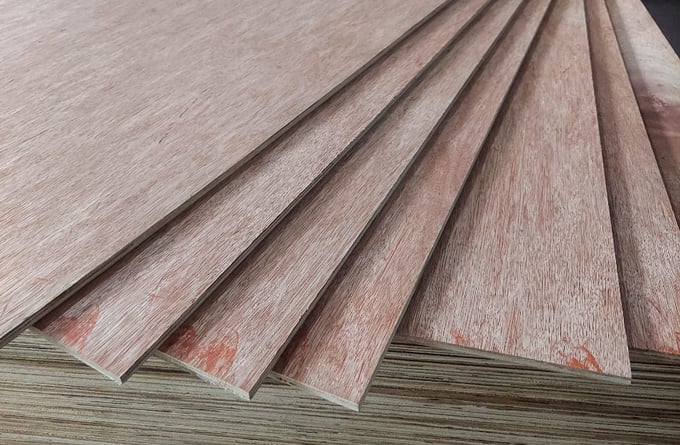
South Korea is a highly potential market for Vietnamese plywood products.
Mr. Nguyen Van Dong, Secretary of the Vietnam Plywood Association, expanded on this issue, stating that South Korea stands as a highly potential market for Vietnamese plywood products. However, Vietnamese businesses have not fully capitalized on the potential of the South Korean market, with some having never engaged in exports to this country.
"Consequently, these businesses are naturally not within the scope of investigation. If they intend to export to South Korea in the future, and face a common duty rate, it will be unfair and detrimental to their long-term development. This could potentially limit the export market for Vietnamese plywood in the long run," Mr. Dong explained.
As a companion of plywood exporters, the Vietnam Plywood Association has recommended that the Vietnam Timber and Forest Products Association and the Trade Remedies Authority of Vietnam make a proposal to the South Korean government regulatory agency in order to facilitate Vietnamese plywood exports to this market.
According to data from 2023, approximately 152 Vietnamese plywood businesses will be subject to will be subject to a minimum duty of 4% when exporting to South Korea. Consequently, they will struggle with competitiveness issues and the risk of closure.
Furthermore, the workforce of these businesses will face unemployment due to the closure of factories. Raw material suppliers will also cease operations, and forests will not be replanted due to lack of demand. Ultimately, the entire forestry and wood processing supply chain will be disrupted.
The government's goals of acquiring green certificates and minimizing environmental pollution will face direct repercussions in the near future. Additionally, South Korean businesses importing plywood from Vietnam and their associated business systems will also face significant challenges.
"We request that the Trade Remedies Authority propose a solution to the South Korean regulatory authority to maintain anti-dumping duties at the level of the previous investigation (10.54%). This solution will enable Vietnamese businesses to maintain market presence and stabilize production against the backdrop of global economic recession," suggested Mr. Trinh Xuan Duong.
According to the Vietnam Timber and Forest Products Association, Vietnam's plywood and engineered wood products were exported to 81 countries and territories worldwide in 2023. Notably, South Korea, Japan, the United States, and Malaysia are the primary markets for Vietnamese plywood products in 2023, accounting for 77.1% of the total export volume and 77.4% of the total export value. South Korea accounted for 29% of the total export volume and 22.7% of the total export value. Namely, this market imported nearly 804.71 thousand cubic meters of plywood from Vietnam, with a total turnover of 201.75 million USD. This is a decrease of 7.2% in volume and 19.6% in value compared to that of 2022.
Translated by Nguyen Hai Long
/2024/04/24/1914-3-121559_180.jpg)
(VAN) To develop the wood industry market, export wood processing enterprises in Vietnam mainly use certified planted forest timber to be proactive about the source of clean raw materials.
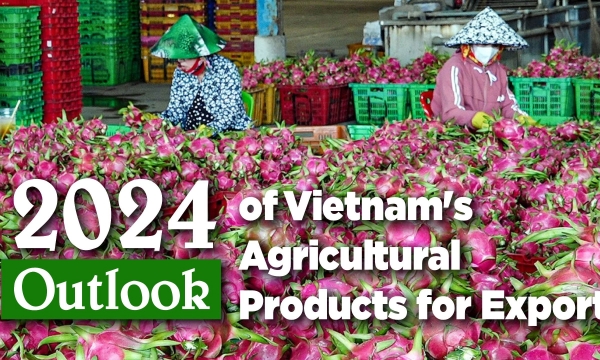
(VAN) Due to scarce supply at the end of the lighting season, combined with stable consumption in the Chinese market, the price of Binh Thuan dragon fruit increased sharply.

(VAN) Vietnam has been exporting rice to Singapore for a long time but has always needed to catch up with some other sources of supply.
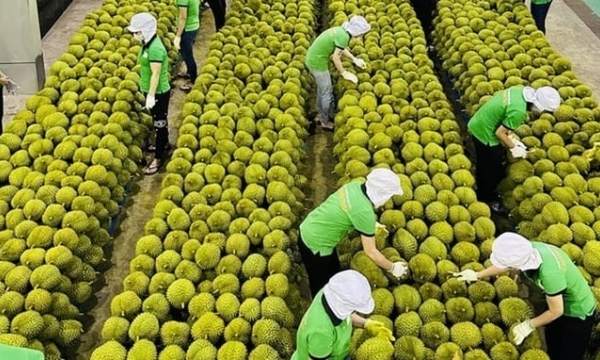
(VAN) As of April 15, Vietnam's industrial product exports have reached 15 billion USD in cumulative value. Notably, six product categories have achieved billion-dollar values.
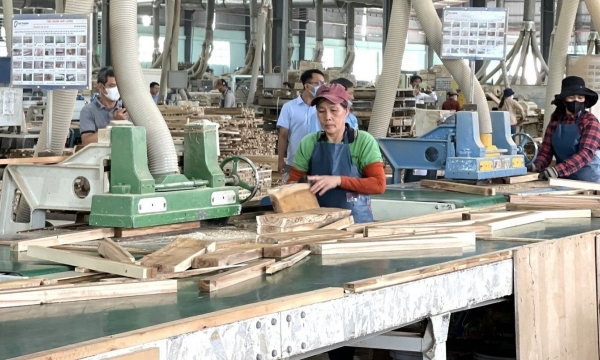
(VAN) In June 2023, the European Parliament voted to approve the anti-deforestation regulation (EUDR). At the end of 2024, this regulation will take effect, adding new challenges for Vietnam's wood industry.
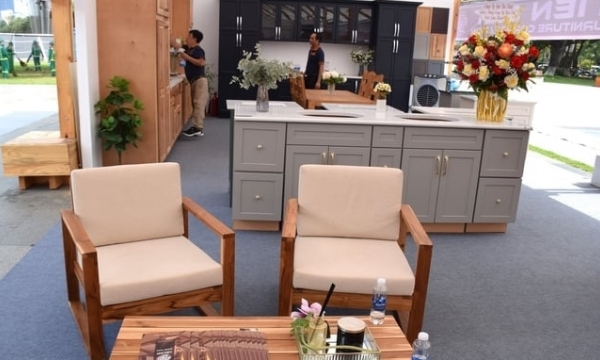
(VAN) Sustainable forest management certification (FSC) is considered the 'visa card' of Vietnam's wood and wood products exported to demanding markets around the world.